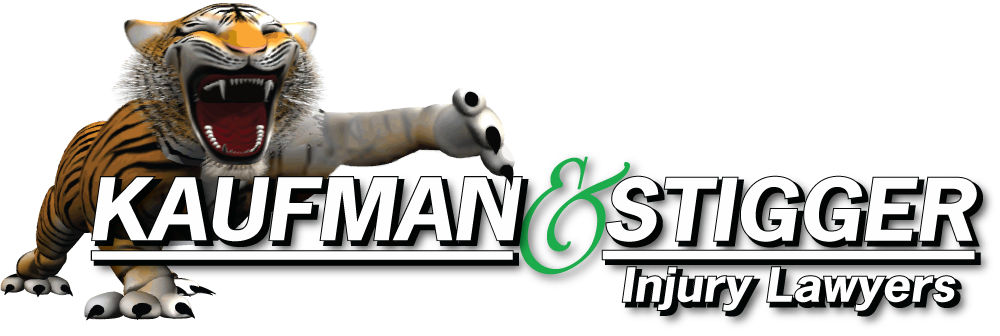Whether it’s a dressed-up meal at the Merrick Inn on Derby Weekend or a casual dinner at a family favorite pizzeria, Lexington has plenty of amazing food options. People will always gather around great eats, but when you visit someone’s property or restaurant you are owed more than just a delicious meal.
Restaurant owners and operators are bound by law to provide you with the safest environment possible when you enjoy your order. It’s something you may never have considered, but if you’re hurt in a slip-and-fall your lunchtime trip can turn into a painful incident requiring a long, expensive medical recovery.
Assistance for Victims After a Slip-And-Fall at a Lexington Restaurant
A slip or a trip as you walk to a table or while you’re looking for the bathrooms can land you with a serious injury. If you fell due to the negligence of the restaurant employees or a property owner, the costs of your recovery shouldn’t be on your shoulders.
A spill may have been left on the floor for an hour. An unsafe stair-step may have caught your foot and sent you falling forward. It’s vital that you talk to a Lexington Slip-And-Fall Attorney after any such accident.
You may think you’re okay and then find out you have a hairline fracture on your hip. These injuries can end up costing you thousands down the road and it’s crucial that you don’t throw away your chance to earn support while you heal.
Common Slip-And-Fall Hazards at Lexington Restaurants
Your stomach may be leading you to a fast food joint or you may be cruising downtown on Limestone seeking out some modern cuisine. No matter the location, employees and managers can be in the middle of a rush and fail to clear out hazards before your foot has a chance to find them.
A restaurant owner may know about a structural problem and has had a chance to fix it but decided to wait. These are both cases where local owners and corporate offices can be held liable for an injury.
Here are some common obstacles that should never affect a customer’s visit to a restaurant:
- Restaurant Spills – A waiter may drop some salad dressing on the floor while delivering plates to a table. A child could spill soda and ice on the way back from the drink machine. These hazards can’t be prevented, but it’s up to restaurant operators to monitor for them and clean them up in a reasonable amount of time.
- Debris in the Dining Room – Customers can drop just about anything. A fork, a tray, or a napkin holder can be just under a table and out of your line of sight. Your foot catches it and you’re suddenly falling forward.
- Floor And Stair Hazards– Cracked tile can provide a tripping hazard. Carpet and rugs can be frayed, curl up, or suffer a rip or tear. For locations with stairs or steps, the railing can be improperly installed and give way. The stairs themselves might suffer damage and crumble or splinter. The lighting on a staircase may not be sufficient for safe stepping. A spill can always end up in a stairwell.
- Weather Issues – It’s a basic duty. Allow customers to get into your restaurant safely. Lexington weather can bring ice and snow, but restaurant owners are required to keep a parking lot reasonably clear. They must also protect customers from slipping on water tracked in near the front door. Frequent mopping and cautions signs are required.
Proving a Restaurant is Liable for Your Injury
At the heart of premises liability laws, there’s a “duty of care” that’s required from property owners and restaurant operators. No matter if it’s a locally owned café or a national chain, customers are supposed to be protected from harm when they step onto the property of any business.
When you take a fall at any restaurant, the first thing you should do is snap photos of the scene if you’re able. Taking a photo of the hazard that sent you to the ground before it’s cleaned up or fixed is the best evidence to secure.
To prove that you weren’t to blame for your accident you’ll be trying to show that the obstacle was either:
- Created by the proprietor, or
- The proprietor knew of the problem and didn’t fix it in a reasonable amount of time.
In some cases, a manager or owner may have been told to fix an issue and they simply put off repairs. In other cases, perhaps a customer created the hazard, but it’s still up to proprietors and their employees to monitor conditions throughout the restaurant at regular intervals to keep obstacles from sitting around too long.
Local and corporate owners will try to discount your claim and prove that you were responsible for your injury. They’ll have lawyers and insurance agents working towards shifting the blame to you.
Letting a personal injury attorney collect evidence and testimony on your behalf and file your claim is your best defense. This is especially true when your case involves insurance companies and corporate lawyers who may act in bad faith.
Contact a Lexington Restaurant Slip-And-Fall Lawyer
After a fall at a restaurant leaves you with a serious injury contact a Lexington Personal Injury Attorney as soon as possible. After a broken bone or a back, hip, or head injury you could be facing months of expensive medical care before you’re back to your normal life. Don’t let the insurance representatives for a restaurant get away with providing you only half of what you’ll need to heal and recover financially.
The attorneys at Kaufman & Stigger, PLLC, have an extensive background in defending the victims of slip-and-falls and can go toe-to-toe with corporate lawyers and insurance agents when necessary. To take advantage of a free consultation, contact Kaufman & Stigger, PLLC, of Lexington today.


